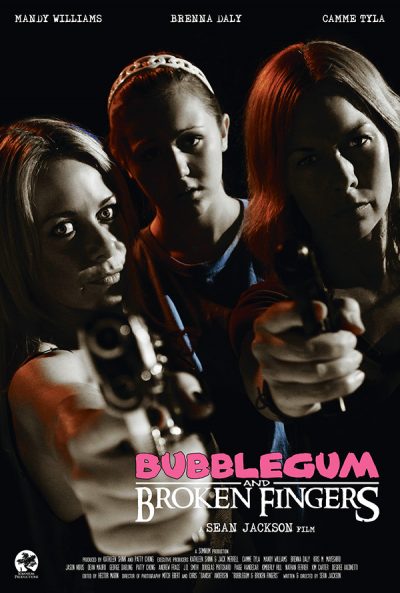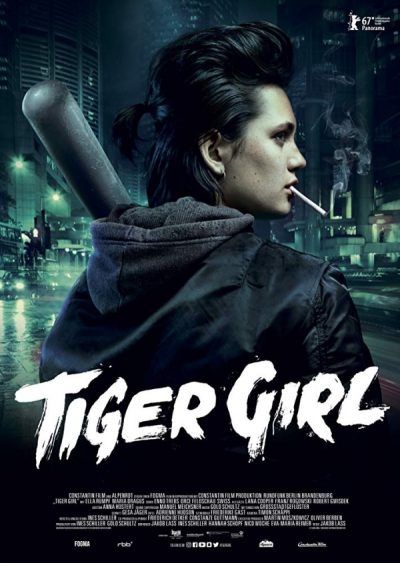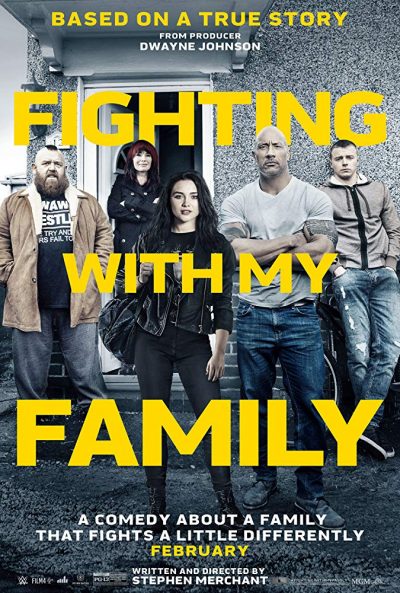★★★½
“The dead want women.”
 Though it may be difficult to believe such a thing, the original Japanese title for this franchise of low-budget efforts was even more politically incorrect: Rape Zombie. If ever a title change was understandable… I went into this, largely on the basis of the covers, and braced for something awful. On that basis, I was pleasantly impressed: yes, this remains staggeringly offensive. Yet it’s clearly made by people who are familiar with, and love, zombie films. There are signs of actual brains being present – and not the kind normally found in the genre, being chewed on by the shambling antagonists. Five films have been made: for now, I’m covering the first three, which are the only ones available with subtitles [because, y’know, understanding the dialogue is so important here…]
Though it may be difficult to believe such a thing, the original Japanese title for this franchise of low-budget efforts was even more politically incorrect: Rape Zombie. If ever a title change was understandable… I went into this, largely on the basis of the covers, and braced for something awful. On that basis, I was pleasantly impressed: yes, this remains staggeringly offensive. Yet it’s clearly made by people who are familiar with, and love, zombie films. There are signs of actual brains being present – and not the kind normally found in the genre, being chewed on by the shambling antagonists. Five films have been made: for now, I’m covering the first three, which are the only ones available with subtitles [because, y’know, understanding the dialogue is so important here…]
The concept is more or less the standard one: a global outbreak of some kind of illness, turning the victims into mindless creatures, who attack any non-infected person they encounter. The difference here is that the disease affects only men, and turns them into sex-crazed rapists, who will sexually assault every woman they meet. [This does an amusing job of explaining the traditional slow, shuffling gait of the zombie – here, it’s because their pants are around their ankles.] Making things worse, their semen kills their victims. Needless to say, 50% of the population is less than happy with this situation, setting up a literal war of the sexes, with the now female-led military distributing weapons to its civilian colleagues, for the battle against those pesky rape zombies.
The sex is actually the least interesting thing here – though I note, up until the very end of part 3, there is apparently no such thing as a gay zombie, who goes after other men. What is far more entertaining is the shotgun social satire at play, with the makers turning the heat up on just about everyone. Feminists. Male rights activists. The media. Politicians. Women. Men (for once, “toxic masculinity” is not hyperbole). Social networking. Idol culture. For instance, the rapidly appointed female Prime Minister proclaims, “We’re only in this situation because we allowed men to run wild with their perverted fantasies!” – then high-tails it to Hawaii, immediately she finds out North Korea has launched a nuke at Japan. When that missile flies across the skies of Tokyo, everyone just whips out their phones to take video of it.
 There are four heroines in the series: two pairs, who team up following some initial distrust. Momoko (Kobayashi) ends up in hospital as the crisis breaks, after slashing her wrists at work. There, she’s befriended by nurse Nozomi (Ozawa), and when all hell breaks loose, the pair flee the hospital, and end up taking refuge in a Shinto shrine. There, they meet Kanae (Asami) and Tomoe (Aikawa), a battered housewife and a schoolgirl who have also been trying to survive the carnage. The actresses portraying all four, incidentally, are best known for their adult work, though seem to acquit themselves credibly enough with the (admittedly, fairly limited) acting required here.
There are four heroines in the series: two pairs, who team up following some initial distrust. Momoko (Kobayashi) ends up in hospital as the crisis breaks, after slashing her wrists at work. There, she’s befriended by nurse Nozomi (Ozawa), and when all hell breaks loose, the pair flee the hospital, and end up taking refuge in a Shinto shrine. There, they meet Kanae (Asami) and Tomoe (Aikawa), a battered housewife and a schoolgirl who have also been trying to survive the carnage. The actresses portraying all four, incidentally, are best known for their adult work, though seem to acquit themselves credibly enough with the (admittedly, fairly limited) acting required here.
The main…ah, thrust of the trilogy is that men’s vulnerability to the virus (or whatever it is), is dependent on their pre-epidemic sexual appetite and activity. So, the jocks and pretty boys of society are pretty much toast: who inherit the earth are the otaku. That word is probably best translated as the Japanese version of nerds/fanboys, though more derogatory in connotation there, with a particular lack of social skills. When things settle down, they form the “Akiba Empire”, blaming women for the collapse of society. They hunt the remaining “3D women” with the air of domesticated zombies. On the other side are the “Amazons”, consisting of women soldiers from the Japanese Self-Defense Forces, and other survivors, including our four heroines and scientists working on a cure.
There are a couple of further wrinkles to this scenario. Momoe ended up pregnant by her husband, but is also raped by a zombie, though survives. The resulting child – born remarkably quickly – is apparently seen as some kind of saviour by the zombies and th Akiba Empitre, who won’t attack it or Momoe. She ends up apparently driven insane, a crypto-divine figure to the otaku, worshipped as an idol – in the J-pop sense at least, performing excruciatingly bad (deliberately, I sense) musical routines for them. Meanwhile, Tomoe – spoiler – dies at the end of part one, but comes back in two and three as an American combat robot, complete with laser eyes and lightning-producing fingers. She’s sent to Japan, both to gather data and carry out something called “Project Herod”. Which is what you would expect: part three ends in a cliff-hanger, with her and Momoe in a face-off.
 It would have been very easy for this to simply be a porn film with zombies in it, which I’m sure exist. As I hope the above makes clear, it isn’t. Horror fans will have fun spotting the riffs on other genre entries, such as the twist on Return of the Living Dead where a captive zombie is quizzed to its motivation: the answer here, naturally, being “More… pussy.” [As an aside, certain words are bleeped out on the Japanese soundtrack, which seems surprisingly prurient, given the nature of these films!] The second also introduces Shinji, a non-otaku seemingly unaffected by the epidemic, and his girlfriend, Maki; he becomes a key part of the scientific research, though it turns out his immunity isn’t quite what it seems. Despite the copious nudity, it all feels not dissimilar to George Romero’s Day of the Dead, located at the shadowy nexus of science and the military-industrial complex.
It would have been very easy for this to simply be a porn film with zombies in it, which I’m sure exist. As I hope the above makes clear, it isn’t. Horror fans will have fun spotting the riffs on other genre entries, such as the twist on Return of the Living Dead where a captive zombie is quizzed to its motivation: the answer here, naturally, being “More… pussy.” [As an aside, certain words are bleeped out on the Japanese soundtrack, which seems surprisingly prurient, given the nature of these films!] The second also introduces Shinji, a non-otaku seemingly unaffected by the epidemic, and his girlfriend, Maki; he becomes a key part of the scientific research, though it turns out his immunity isn’t quite what it seems. Despite the copious nudity, it all feels not dissimilar to George Romero’s Day of the Dead, located at the shadowy nexus of science and the military-industrial complex.
Overall, the trilogy manages to cram in more invention than entire later seasons of The Walking Dead. It’s especially impressive considering each film runs barely an hour – less if you discount the “Previously…” opener and closing credits. I’m not entirely convinced there needs to have been five of these films; with editing, you could likely condense them all into two, maybe two and a half, hours and lose little or no impact. There are certainly times where the intent far outstrips the available resources, to an almost painful degree, and I’m no fan of the CGI splatter which is used more often that I’d like. It remains a rare case where exploitation comes with actual smarts, and that’s a combination you just don’t see very often.
Dir: Naoyuki Tomomatsu
Star: Saya Kobayashi, Alice Ozawa, Yui Aikawa, Asami
a.k.a. Rape Zombie
 The elevator pitch version of this sounds like a million other kung-fu films: Shen Ping Hong (Li) seeks revenge on the people who killed her parents and left her crippled. But there’s rather more going on beneath the surface, and shades of grey on both sides. One of her targets, Lord Kao Hung, regrets what happened and wants to help Shen regain the use of her legs. But Shen only agrees to let his son Tien-Ying (Yueh) help, in the belief that it will make her mission of vengeance easier. It feels almost like she’s a mad dog, lashing out at anyone who tries to help; keeping the severed heads of her victims in jars is a clue there. Meanwhile, Kao’s associates – and Tien-Ying’s ex-girlfriend (Chiao) – think he’s helping because he wants to get Shen’s jade sword for his own ends, and are intent on getting their revenge in on her first.
The elevator pitch version of this sounds like a million other kung-fu films: Shen Ping Hong (Li) seeks revenge on the people who killed her parents and left her crippled. But there’s rather more going on beneath the surface, and shades of grey on both sides. One of her targets, Lord Kao Hung, regrets what happened and wants to help Shen regain the use of her legs. But Shen only agrees to let his son Tien-Ying (Yueh) help, in the belief that it will make her mission of vengeance easier. It feels almost like she’s a mad dog, lashing out at anyone who tries to help; keeping the severed heads of her victims in jars is a clue there. Meanwhile, Kao’s associates – and Tien-Ying’s ex-girlfriend (Chiao) – think he’s helping because he wants to get Shen’s jade sword for his own ends, and are intent on getting their revenge in on her first.




 While this is the sixth installment of the series, because the stories are strictly episodic and not connected to each other, and are set at various times in the 60s, they don’t really have to be read after the first five novels to be understood and appreciated. (It would probably be best to read the first novel first, just to provide a foundation.) In a couple of stories, references are made to events, and characters reappear, which are probably drawn from the novels; but any information about past events that we need to know is supplied. Five of them are written in third person; “I Had a Date with Lady Janet” is unique in that Willie narrates it in first person, which helps to develop his character more deeply. The settings are mostly British or continental European, with one tale taking place in South America. All six adventures involve Modesty in a wide variety of situations, which illustrate various aspects of her personality and abilities; that may explain the collection’s odd title. (Don’t worry –Modesty is not dismembered!)
While this is the sixth installment of the series, because the stories are strictly episodic and not connected to each other, and are set at various times in the 60s, they don’t really have to be read after the first five novels to be understood and appreciated. (It would probably be best to read the first novel first, just to provide a foundation.) In a couple of stories, references are made to events, and characters reappear, which are probably drawn from the novels; but any information about past events that we need to know is supplied. Five of them are written in third person; “I Had a Date with Lady Janet” is unique in that Willie narrates it in first person, which helps to develop his character more deeply. The settings are mostly British or continental European, with one tale taking place in South America. All six adventures involve Modesty in a wide variety of situations, which illustrate various aspects of her personality and abilities; that may explain the collection’s odd title. (Don’t worry –Modesty is not dismembered!) “Salamander Four” is the only selection here that indicates Modesty’s openness, on occasion, to uncommitted sex (although there’s no explicit sexual content there, or in any of the stories), but the psychology of it is understandable and she comes across to me as misguided rather than callous and selfish –it’s clear that her intention isn’t knowingly to be hurtful or exploitative. Finally, “The Soo Girl Charity” is the most disturbing of the stories, in that (though without being graphic) it provides a look into the dark reality of the exploitation of women by sexual sadists, and into the even darker reality of what pounded-in cultural brainwashing of females to accept patriarchy and male domination actually does to their psyches. (I didn’t feel that the victim here being Asian indicates racism or cultural stereotyping; I think that simply reflects a reality that, at least in the 60s, traditional rural Asian cultures still tended to promote that kind of brainwashing to a greater degree than Occidental ones –even though the sexism of our culture is bad enough.)
“Salamander Four” is the only selection here that indicates Modesty’s openness, on occasion, to uncommitted sex (although there’s no explicit sexual content there, or in any of the stories), but the psychology of it is understandable and she comes across to me as misguided rather than callous and selfish –it’s clear that her intention isn’t knowingly to be hurtful or exploitative. Finally, “The Soo Girl Charity” is the most disturbing of the stories, in that (though without being graphic) it provides a look into the dark reality of the exploitation of women by sexual sadists, and into the even darker reality of what pounded-in cultural brainwashing of females to accept patriarchy and male domination actually does to their psyches. (I didn’t feel that the victim here being Asian indicates racism or cultural stereotyping; I think that simply reflects a reality that, at least in the 60s, traditional rural Asian cultures still tended to promote that kind of brainwashing to a greater degree than Occidental ones –even though the sexism of our culture is bad enough.) Outside of Kill Bill, I’ve never been a fan of Quentin Tarantino. But this film did give me some appreciation for him. Because it’s only when you see Tarantino done badly, that you realize the aspects he does well. It undeniably takes some skills to keep a story-line involving multiple sets of characters in the air, especially when centered on a Macguffin like a suitcase whose contents are never revealed. Jackson tries to do exactly the same thing here, and the result is, frankly, a mess, where you’re left caring little or nothing about any of the participants.
Outside of Kill Bill, I’ve never been a fan of Quentin Tarantino. But this film did give me some appreciation for him. Because it’s only when you see Tarantino done badly, that you realize the aspects he does well. It undeniably takes some skills to keep a story-line involving multiple sets of characters in the air, especially when centered on a Macguffin like a suitcase whose contents are never revealed. Jackson tries to do exactly the same thing here, and the result is, frankly, a mess, where you’re left caring little or nothing about any of the participants. A fine, almost unrecognizable performance by Kidman succeeds in maintaining interest, despite a script which appears to regard time less like an arrow, and more like a big ball of wibbly-wobbly, timey-wimey stuff. Deeply troubled cop Erin Bell (Kidman) wakes up in her car, apparently badly hungover, looking like ten pounds of crap in a five-pound bag. Not far away, her colleagues are poring over a newly-discovered murder scene: a body with a dye-stained hundred-dollar bill on the corpse. And that’s about the last time when I was quite certain of the timeline.
A fine, almost unrecognizable performance by Kidman succeeds in maintaining interest, despite a script which appears to regard time less like an arrow, and more like a big ball of wibbly-wobbly, timey-wimey stuff. Deeply troubled cop Erin Bell (Kidman) wakes up in her car, apparently badly hungover, looking like ten pounds of crap in a five-pound bag. Not far away, her colleagues are poring over a newly-discovered murder scene: a body with a dye-stained hundred-dollar bill on the corpse. And that’s about the last time when I was quite certain of the timeline. Maggie (Dragus) just failed the police entry exam in humiliating fashion, and is now taking a course to become a security officer, despite her meek nature. She encounters Tiger (Rumpf), a street punk girl who is everything Maggie is not: brash, confident and perfectly willing to go toe-to-toe with anyone she feels deserves it. The pair strike up an unlikely friendship, with a purloined uniform allowing Tiger to join Maggie in her security work, and in turn engage her increasing fondness for mayhem and violence. Meanwhile, Tiger’s example helps bring Maggie – or ‘Vanilla’, as Tiger calls her in half-mocking endearment – out of her shell. Though Tiger’s drug-dealing friends are less than impressed to find her palling around with a wannabe cop. And as Maggie begins to adopt a more… physical approach to confrontation, it becomes clear that Tiger’s restraint is something Maggie does not possess.
Maggie (Dragus) just failed the police entry exam in humiliating fashion, and is now taking a course to become a security officer, despite her meek nature. She encounters Tiger (Rumpf), a street punk girl who is everything Maggie is not: brash, confident and perfectly willing to go toe-to-toe with anyone she feels deserves it. The pair strike up an unlikely friendship, with a purloined uniform allowing Tiger to join Maggie in her security work, and in turn engage her increasing fondness for mayhem and violence. Meanwhile, Tiger’s example helps bring Maggie – or ‘Vanilla’, as Tiger calls her in half-mocking endearment – out of her shell. Though Tiger’s drug-dealing friends are less than impressed to find her palling around with a wannabe cop. And as Maggie begins to adopt a more… physical approach to confrontation, it becomes clear that Tiger’s restraint is something Maggie does not possess. I usually try to be tolerant when it comes to low-budget cinema and the resulting flaws. There are some things which you just cannot expect when a film is financed on the maker’s credit-card, and I’m willing to overlook rough edges if a movie can hold my interest in other ways. However, there are times when the end product is almost irredeemably bad, with few, if any, merits. This would be one such case. Your script is the main area which should be an area of equal opportunity, regardless of budget. Here, if anything, the flaws at the technical level are magnified by the failings on the page.
I usually try to be tolerant when it comes to low-budget cinema and the resulting flaws. There are some things which you just cannot expect when a film is financed on the maker’s credit-card, and I’m willing to overlook rough edges if a movie can hold my interest in other ways. However, there are times when the end product is almost irredeemably bad, with few, if any, merits. This would be one such case. Your script is the main area which should be an area of equal opportunity, regardless of budget. Here, if anything, the flaws at the technical level are magnified by the failings on the page. This biopic of WWE Women’s Champion Paige, a.k.a. Saraya Knight from the English seaside town of Norwich, gets a lot of things right about professional wrestling. In particular, it strikes a good balance between the various aspects – positive and negative – of the sports entertainment business. Over the past twenty years, Chris and I have been intermittently involved with the independent end of the wrestling scene, like Knight and her family, and this captures the low-rent showbiz aspects beautifully. Yet it doesn’t shortchange the seductive – almost addictive – appeal of performance for a responsive crowd, or the potential escape from a drab life it offers someone like Saraya/Paige.
This biopic of WWE Women’s Champion Paige, a.k.a. Saraya Knight from the English seaside town of Norwich, gets a lot of things right about professional wrestling. In particular, it strikes a good balance between the various aspects – positive and negative – of the sports entertainment business. Over the past twenty years, Chris and I have been intermittently involved with the independent end of the wrestling scene, like Knight and her family, and this captures the low-rent showbiz aspects beautifully. Yet it doesn’t shortchange the seductive – almost addictive – appeal of performance for a responsive crowd, or the potential escape from a drab life it offers someone like Saraya/Paige. This feels less like a novel, than a novelization of a screenplay, adapted by a not particularly proficient writer. The text is littered with paragraphs which seem more like stage directions than literature, and is startlingly repetitive. For example, in one section near the beginning of the book, five of seven consecutive paragraphs start with, “As she/Kayla…” It’s not necessarily a bad screenplay, with an idea containing some potential. But it would be in need of several rewrites before any studio exec would sign off on it.
This feels less like a novel, than a novelization of a screenplay, adapted by a not particularly proficient writer. The text is littered with paragraphs which seem more like stage directions than literature, and is startlingly repetitive. For example, in one section near the beginning of the book, five of seven consecutive paragraphs start with, “As she/Kayla…” It’s not necessarily a bad screenplay, with an idea containing some potential. But it would be in need of several rewrites before any studio exec would sign off on it. Though it may be difficult to believe such a thing, the original Japanese title for this franchise of low-budget efforts was even more politically incorrect: Rape Zombie. If ever a title change was understandable… I went into this, largely on the basis of the covers, and braced for something awful. On that basis, I was pleasantly impressed: yes, this remains staggeringly offensive. Yet it’s clearly made by people who are familiar with, and love, zombie films. There are signs of actual brains being present – and not the kind normally found in the genre, being chewed on by the shambling antagonists. Five films have been made: for now, I’m covering the first three, which are the only ones available with subtitles [because, y’know, understanding the dialogue is
Though it may be difficult to believe such a thing, the original Japanese title for this franchise of low-budget efforts was even more politically incorrect: Rape Zombie. If ever a title change was understandable… I went into this, largely on the basis of the covers, and braced for something awful. On that basis, I was pleasantly impressed: yes, this remains staggeringly offensive. Yet it’s clearly made by people who are familiar with, and love, zombie films. There are signs of actual brains being present – and not the kind normally found in the genre, being chewed on by the shambling antagonists. Five films have been made: for now, I’m covering the first three, which are the only ones available with subtitles [because, y’know, understanding the dialogue is  There are four heroines in the series: two pairs, who team up following some initial distrust. Momoko (Kobayashi) ends up in hospital as the crisis breaks, after slashing her wrists at work. There, she’s befriended by nurse Nozomi (Ozawa), and when all hell breaks loose, the pair flee the hospital, and end up taking refuge in a Shinto shrine. There, they meet Kanae (Asami) and Tomoe (Aikawa), a battered housewife and a schoolgirl who have also been trying to survive the carnage. The actresses portraying all four, incidentally, are best known for their adult work, though seem to acquit themselves credibly enough with the (admittedly, fairly limited) acting required here.
There are four heroines in the series: two pairs, who team up following some initial distrust. Momoko (Kobayashi) ends up in hospital as the crisis breaks, after slashing her wrists at work. There, she’s befriended by nurse Nozomi (Ozawa), and when all hell breaks loose, the pair flee the hospital, and end up taking refuge in a Shinto shrine. There, they meet Kanae (Asami) and Tomoe (Aikawa), a battered housewife and a schoolgirl who have also been trying to survive the carnage. The actresses portraying all four, incidentally, are best known for their adult work, though seem to acquit themselves credibly enough with the (admittedly, fairly limited) acting required here. It would have been very easy for this to simply be a porn film with zombies in it, which I’m sure exist. As I hope the above makes clear, it isn’t. Horror fans will have fun spotting the riffs on other genre entries, such as the twist on Return of the Living Dead where a captive zombie is quizzed to its motivation: the answer here, naturally, being “More… pussy.” [As an aside, certain words are bleeped out on the Japanese soundtrack, which seems surprisingly prurient, given the nature of these films!] The second also introduces Shinji, a non-otaku seemingly unaffected by the epidemic, and his girlfriend, Maki; he becomes a key part of the scientific research, though it turns out his immunity isn’t quite what it seems. Despite the copious nudity, it all feels not dissimilar to George Romero’s Day of the Dead, located at the shadowy nexus of science and the military-industrial complex.
It would have been very easy for this to simply be a porn film with zombies in it, which I’m sure exist. As I hope the above makes clear, it isn’t. Horror fans will have fun spotting the riffs on other genre entries, such as the twist on Return of the Living Dead where a captive zombie is quizzed to its motivation: the answer here, naturally, being “More… pussy.” [As an aside, certain words are bleeped out on the Japanese soundtrack, which seems surprisingly prurient, given the nature of these films!] The second also introduces Shinji, a non-otaku seemingly unaffected by the epidemic, and his girlfriend, Maki; he becomes a key part of the scientific research, though it turns out his immunity isn’t quite what it seems. Despite the copious nudity, it all feels not dissimilar to George Romero’s Day of the Dead, located at the shadowy nexus of science and the military-industrial complex. This takes place in upstate New York during the 1812 war between Britain and America, when combatants are courting the Mohawk tribe to join forces with them. The natives are suspicious of both, and won’t commit to either. Working for the British is Joshua (Farren), who is in a slightly odd, three-way relationship with Mohawk warrioress Oak (Horn) and fellow native Calvin (Rain). On the other side is Hezekiah Holt (Buzzington), and his small band of Americans, who are out for redcoat blood. When they blame the Mohawk for murdering some of their number, their violence quickly extends to encompass Oak and Calvin, as well as Joshua. After Oak is left all alone, she goes on the war-path to take revenge on Holt and his men.
This takes place in upstate New York during the 1812 war between Britain and America, when combatants are courting the Mohawk tribe to join forces with them. The natives are suspicious of both, and won’t commit to either. Working for the British is Joshua (Farren), who is in a slightly odd, three-way relationship with Mohawk warrioress Oak (Horn) and fellow native Calvin (Rain). On the other side is Hezekiah Holt (Buzzington), and his small band of Americans, who are out for redcoat blood. When they blame the Mohawk for murdering some of their number, their violence quickly extends to encompass Oak and Calvin, as well as Joshua. After Oak is left all alone, she goes on the war-path to take revenge on Holt and his men.